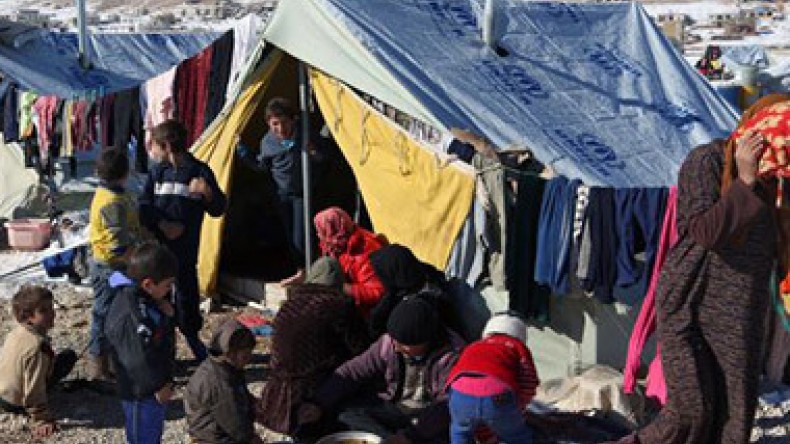
International aid to Syrian refugees politicized – commentator
Press TV has conducted an interview with Jamal Wakim, political commentator from Beirut, about Amnesty International saying many Syrian refugees in Lebanon are unable to access crucial medical care due to a lack of international support.
Press TV: Let’s jump right in. I’d like to get your thoughts on this specific report first before we expand to other issues regarding the Syrian refugees.
Give us your thoughts on this recent report by the Amnesty International?
Wakim: Well I believe that the problem or the problems that the Syrian refugees are facing in Lebanon are multiple. First of all the number of refugees compared to the country’s population became huge. We have over one and a half million refugees in Lebanon, Syrian refuges, compared to a population of around four million.
If you compare these figures to Turkey for example, we have around 600,000 refugees in Turkey compared to a population of 80 million. So this puts a big burden on the country, on Lebanon on the one hand, knowing that Lebanon or the state in Lebanon was not providing good services for its own citizens.
So this is creating a lot of problems in terms of services provided for the refugees. We should note also that many humanitarian organizations, NGOs and so on are not efficient or some of them are benefitting from the situation in order to generate money for their organizations.
So not all organizations are professional organizations and to compare between the Lebanese people and the Syrian people in Lebanon, the Lebanese people did not benefit from a good welfare system where the state could provide good medicine and good education for example, public education for free while in Syria education and medicine and public services were provided by the state at very cheap cost, if not free cost.
So the refugees which are used to having easy access to these services are finding it difficult to benefit from these services in a very costly country like Lebanon.
Press TV: Mr. Wakim, surely the rising number of Syrian refugees over the past couple of years has turned this into a humanitarian disaster. My question is why isn’t the international aid that the Syrians need, why isn’t it being generated? Why isn’t it reaching the hands of the Syrians and what can be done to remedy the situation?
Wakim: Well there are lots of reasons for this. First of all, the European countries that promised to grant aid, first of all they are suffering, many of these countries are suffering from economic hardship.
Second, aid is politicized. Some of the Western countries including the United States want for this problem to generate into civil unrest in Lebanon. That is why they are not trying to grant any help for the Syrian refugees because they think that their hard situation and the burden they are putting on Lebanese society might cause tensions between Syrians and Lebanese and of course it could outburst into public unrest, the way it is going on in Syria.
I believe that this runs to the best benefit of the American strategy in the region. Some other countries generated some financial aid but the way this aid was channeled, many NGOs were established just to benefit from this aid and many of them are not targeted towards helping the Syrian refugees but are taking the refugees as a pretext to make money from them.
I know many of these NGOs or members of these NGOs who have negative, let’s say stance towards the refugees. How could you have a negative stance and still go and help these refugees?
This is not a technical issue. It is a humanitarian issue and you need to be devoted to this cause, so all these problems add to the gravity of the situation.
Newsfeed
Videos






























